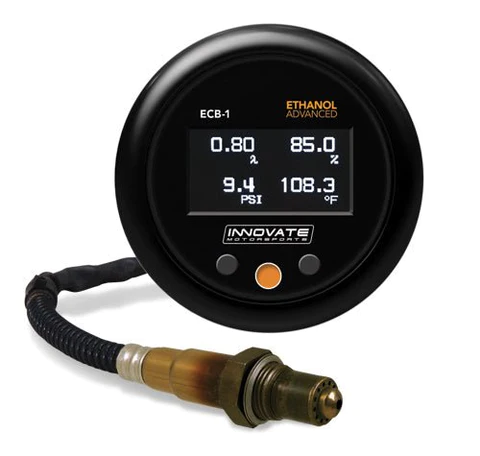
If you’re a car enthusiast, you’ve probably heard about the benefits of ethanol tuning. Ethanol is an alternative fuel source that’s been gaining popularity in recent years due to its numerous advantages over traditional gasoline. In this blog, we’ll explore the world of ethanol tuning and what makes it such an attractive and interesting option for car enthusiasts.
First, let’s define what ethanol tuning is. Ethanol tuning involves adjusting the engine management system of a vehicle to take advantage of the benefits of using ethanol as a fuel source. The process typically involves installing larger fuel injectors, a higher flow fuel pump, and reprogramming the engine control unit (ECU) to adjust for the higher octane rating of ethanol.
So, what are the benefits of ethanol tuning? First and foremost, ethanol has a higher octane rating than gasoline. This means that it’s less likely to pre-ignite or “knock” in high-performance engines. Ethanol also has a higher latent heat of vaporization, which means that it can absorb more heat during the combustion process. This leads to lower engine temperatures, reduced engine wear, and a longer engine life.
Another benefit of ethanol tuning is that it’s a renewable and sustainable fuel source. Ethanol is made from renewable resources like corn, sugarcane, and other crops. This means that it’s a much more environmentally friendly option than traditional gasoline, which is made from non-renewable fossil fuels.
In addition to its environmental benefits, ethanol also has a higher energy density than gasoline. This means that it can provide more power per unit of fuel than gasoline. As a result, vehicles that are tuned for ethanol can often produce more horsepower and torque than their gasoline counterparts.
But perhaps the most interesting aspect of ethanol tuning is the community that has developed around it. Ethanol tuning has become a popular hobby for car enthusiasts, who enjoy the process of fine-tuning their vehicles to get the most performance out of them. There are numerous online forums and communities dedicated to ethanol tuning, where enthusiasts can share tips, advice, and information about their tuning setups.
In conclusion, ethanol tuning is an attractive and interesting option for car enthusiasts who are looking to get the most performance out of their vehicles. It offers numerous benefits over traditional gasoline, including higher octane ratings, lower engine temperatures, and a more sustainable fuel source. And with a dedicated community of enthusiasts, it’s also a great way to connect with like-minded car lovers and share knowledge and advice.
Advantages
There are several advantages to ethanol tuning, including:
- Higher Octane Rating: Ethanol has a higher octane rating than gasoline, which means that it’s less likely to pre-ignite or “knock” in high-performance engines. This allows for higher compression ratios and more advanced timing, which can result in increased power and torque.
- Environmental Benefits: Ethanol is a renewable and sustainable fuel source that is made from crops such as corn, sugarcane, and other agricultural products. As a result, it produces fewer harmful emissions than traditional gasoline, making it a more environmentally friendly option.
- Lower Engine Temperatures: Ethanol has a higher latent heat of vaporization than gasoline, which means that it can absorb more heat during the combustion process. This leads to lower engine temperatures, reduced engine wear, and a longer engine life.
- Improved Performance: Ethanol has a higher energy density than gasoline, which means that it can provide more power per unit of fuel than gasoline. As a result, vehicles that are tuned for ethanol can often produce more horsepower and torque than their gasoline counterparts.
- Cost Savings: While the cost of ethanol can vary depending on location and availability, it is often cheaper than gasoline. In addition, many vehicles that are tuned for ethanol can achieve better fuel economy than those running on gasoline, which can lead to additional cost savings over time.
Overall, ethanol tuning offers several advantages over traditional gasoline, including increased performance, environmental benefits, and cost savings. As a result, it has become a popular option among car enthusiasts who are looking to get the most out of their vehicles.
Disadvantages
While there are several advantages to ethanol tuning, there are also some disadvantages to consider:
- Availability: Ethanol is not as widely available as gasoline in many areas, which can make it difficult for drivers to find and use.
- Lower Energy Density: While ethanol has a higher energy density than gasoline, it contains less energy per gallon. This means that drivers may need to use more fuel to travel the same distance, which can offset any cost savings from using ethanol.
- Corrosion: Ethanol has a higher water content than gasoline, which can lead to corrosion in fuel systems and engine components over time. This can result in expensive repairs and maintenance costs.
- Incompatibility with Some Vehicles: Some vehicles may not be able to handle ethanol blends, particularly those with older fuel systems or engines. This can limit the availability of ethanol as an option for drivers.
- Reduced Range: Because ethanol has a lower energy density than gasoline, vehicles that are tuned for ethanol may have a reduced range compared to those running on gasoline.
Overall, while ethanol tuning offers several advantages, there are also some disadvantages to consider, including availability, lower energy density, potential for corrosion, incompatibility with some vehicles, and reduced range. As with any fuel source or tuning option, it’s important for drivers to weigh the pros and cons and determine what works best for their individual needs and circumstances.





